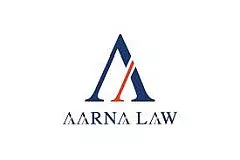- within Corporate/Commercial Law topic(s)
- in United States
- within Corporate/Commercial Law topic(s)
- in United States
- with readers working within the Automotive and Law Firm industries
- within Corporate/Commercial Law, Family and Matrimonial and Technology topic(s)
- with Finance and Tax Executives
Background
Tractor and Farm Equipment Ltd. (hereinafter called TAFE) is an Indian Agricultural machinery manufacturer based in Chennai; India is a part of the Amalgamations Group. AGCO (Allis Gleaner Corporation) is an American agricultural machinery manufacturer headquartered in Duluth, Georgia, USA. TAFE acquired shareholding in AGCO corporation in 2012 to become its single largest shareholder and strategic long – term investor. AGCO has licensed TAFE the right to use the Massey Ferguson trade name in India and certain other countries.
An agreement inked in July 2017 by the two has allowed TAFE to supply certain Massey Ferguson Heritage tractors to markets such as Vietnam, Indonesia, the Philippines, Thailand, Malaysia, Fiji, Papua New Guinea, Mexico, Australia, New Zealand and select African countries.
In April 2024, AGCO served termination notices to TAFE, for which TAFE secures an interim order by the Commercial Court of Chennai, preventing either party from altering the position as it stood on April 29, 2024. However, following termination with immediate effect on September 30, 2024, it was said that AGCO company has delivered termination notices, with immediate effect, of its: (i) Massey Ferguson brand license agreement with Tractors and Farm Equipment Limited (TAFE); (ii) a distributor agreement with TAFE for the markets of India, Nepal and Bhutan; and (iii) an intellectual property license agreement with TAFE for the markets of India, Nepal, Sri Lanka, Bangladesh and Bhutan. These terminations follow inappropriate and unauthorized actions taken by TAFE that the company believes breached the various agreements.
TAFE filed a contempt petition against AGCO, citing disobedience of the court's orders. The company noted its pivotal role in establishing the Massey Ferguson brand in India, backed by its indigenous R&D capabilities and a vast product portfolio that spans over 500 models.
This dispute came to an end when the two companies reached a settlement dated 1st July 2025, wherein it was said that the Ownership of Massey Ferguson brand will rest with TAFE as the sole and exclusive owner for India, Nepal and Bhutan, including all rights, title and interest in "Massey Ferguson" and related trademark and goodwill.
In the context of Intellectual Property (IP) owned by large corporations, "bifurcation" refers to the practice of dividing or separating ownership and/or rights related to the IP based on different jurisdictions or legal entities. This strategy can offer several advantages, particularly in India, by allowing companies to optimize their IP management, mitigate risks, and potentially reduce tax liabilities.
What is IP Bifurcation?
IP rights inherently are territorial in nature. They exist only within their sovereign country. The Multinational companies use the method of bifurcation and segregation of IP across different countries to ensure that there is a commercial advantage. The meaning of IP bifurcation is that instead of a single entity owning all IP rights globally, different entities within a multinational corporation might own or license the IP in specific territories or for uses. This separation often aligns with the legal and regulatory landscapes of different countries. For example, a parent company might own the IP globally, while a subsidiary in India holds the rights to use, manufacture, or sell products based on that IP within India.
Types of Bifurcation
IP can be usually bifurcated in the following manner –
- Ownership Bifurcation: Different entities within a corporate structure hold legal ownership of the IP in different jurisdictions.
- Licensing Bifurcation: The parent company licenses the IP to its subsidiaries or other companies for use in specific regions or for specific purposes.
- Territorial Bifurcation: IP rights are divided based on geographical boundaries, with different entities holding rights within different countries or regions.
Types of IP bifurcation in India
In India, while the term "bifurcation of IP" is not used formally in statues, the concept is well recognised in practise. Some of the key types of IP Bifurcation recognised in India are as follows:
- Legal Ownership V. Economic Ownership Bifurcation – The company may have the Legal Ownership of the IP entirely in one country; however, it may also give economic ownership which includes the right to use the IP and the right to make profits from it.
- Functional Bifurcation – IP is split across entities or jurisdictions based on its functions or category. The Trademarks owned by the companies can be divided into specific categories such as for marketing, R&D, etc.
- Territorial Licensing bifurcation – This can be commonly seen in India, especially in Franchise agreements, Technology transfer deals, etc. This is where one company holds the IP and grants exclusive and nonexclusive licenses only to the territory of India. This can be observed in the above case of MF, wherein TAFE has the license of the trademark in whole of India.
- Registered owner V. Beneficial user Bifurcation – This happens when the IP owner, that is the parent company allows an Indian entity within the structure of the Company to use the IP without any formal licensing.
Why corporations Bifurcate IP – Strategic Motivations
By bifurcating the Intellectual Property held by a company, it creates a strategic structure in terms of Tax, that is one of the main reasons why a large corporation bifurcates their IP. The reasons why a large corporation bifurcate IP is as follows:
- Legal and regulatory mechanism – The main reason an IP is bifurcated is because the companies choose to minimize its exposure to litigation proceedings. Furthermore, by bifurcating the IP corporations such as the MNC's can protect their IP across different jurisdictions.
- Tax Planning – The large corporations which are set up in high income countries which essentially has a high tax economy, will be able to bifurcate their IP to a subsidiary company which is in a Low tax jurisdiction. This maximizes the profit made by the company through IP.
- Market Segmentation and Licensing Control – Large corporation bifurcate IP to have a market control over how their products or services are sold in different countries, and treating each one differently in terms of Pricing, product versions, licensing terms, Distribution strategy and ensure the profits are maximised in each jurisdiction. Furthermore, the company can grant a license to different companies, for instance, a IP holding large corporation can grant exclusive rights of the IP to one local partner in India and at the same time it can Sell the product directly in the US without any local license, this applies in cases where the corporation is in the US.
- IP Valuation and Investment Structuring – When a corporation transfers the IP to different jurisdictions which has a strong investor protections, tax friendly and considers IP as a business asset, it becomes easier for the corporation to raise foreign investments and get a better IP valuation, i.e., the price value of the IP will be calculated so that it can be used in business deals. Similarly, the company can use IP as a collateral to raise funds. This gets easier when it comes to IP bifurcation.
Why is Bifurcation of IP important?
Intellectual Property is one of the most valuable intangible assets of a company, Bifurcation of IP in large corporations become important as IP bifurcation results in maximisation of commercial value of the IP, as it will be held in different regions and enhances the brand name. It also results in Optimisation of Global Tax strategies wherein the company essentially reduces paying heavy taxes by having an IP holding company in a low tax country. Most importantly, it reduces the legal and business risks. The company essentially will be protecting the core assets from being exposed to long litigation and international disputes. Furthermore, it helps the company to follow global compliance of laws, bifurcation of the IP in different jurisdictions helps the companies to structure with regards to the rules of that country.
How Corporation execute Territorial Bifurcation
The IP held by the larger corporations can be bifurcated based on their jurisdiction. Large Corporations can bifurcate their IP or split them among different entities, regions or fields through contracts or other legal obligations. Common Strategies include granting Licensing rights, Assignments or structuring joint ownership.
License is not a transfer of ownership, it is permission to use the IP in a certain way, under certain terms. A License granted is of three types –
- Exclusive – which means that only the licensee can use the IP, even if the licensor is excluded.
- Non – Exclusive – The Licensor can license the same IP to others.
- Sole – A hybrid, where the Licensee and Licensor can both use it, but no one else.
Unlike licenses, the assignments are of a permanent nature, meaning the license can be transferred without any right of the reversion, which implies that once the rights are sold to someone else, they cannot be reclaimed. It is an absolute transfer. Such assignments are very frequently made under employment or contractor agreement, wherein the companies acquire the assets of other companies, or when intellectual property as security.
Corporations may co own IP or assign it to joint venture. In joint ventures (JVs), Intellectual Property (IP) bifurcation involves defining and separating ownership and usage rights of IP assets, both pre-existing (background IP) and created during the JV (foreground IP).
Furthermore, the most common way that the large corporations execute territorial Bifurcation is by creating holding and subsidiary companies. The regional companies will be the holding company which will have the complete ownership of the IP and then grant license to the subsidiary company.
Recommended Read: Copyrighting Individuals Faces And Voices: Demark's Response To AI And Deepfake Risks
Observations And Conclusion
IP bifurcation isn't just about the splitting of assets but rather about the smart structuring of the large corporations. It is essential for the companies to operate legally, profitably and competitively in today's interconnected global economy.
IP owned by large corporations can be bifurcated based on their jurisdiction by transferring the ownership of the IP rights held by the company, either by licensing, which is temporary, where must be frequent renewals of the license, which is granted or by assignment, that is a permanent transfer of ownership. Assignment can be done under Section 37 of the Trademarks Act 1999. Bifurcating the IP portfolio of a company is a strategic move that ensures that the local market of the brand is not harmed and there is market flexibility, reduces risk of the continuous legal disputes, and reduces the tax efficiency of the company. Bifurcations also provide the company a better management hold over the IP portfolio of the company.
IP rights for the MF brand were assigned to TAFE by a settlement of this dispute between the two parties. TAFE becomes the exclusive and sole owner of the MF trademarks. The consideration AGCO is receiving from this settlement is the $260 million which TAFE will be paying to buy back AGCO's 20.7% stake in the company by giving TAFE the exclusive right only in three countries, AGCO gets to have the rights over the MF brand in other countries which makes it a win and win situation for both the countries. TAFE having a greater market in India specially, for the MF brand, will be benefitted from this agreement. Similarly, with all the conditions put forth, neither of them is in a state of loss.
The content of this article is intended to provide a general guide to the subject matter. Specialist advice should be sought about your specific circumstances.


